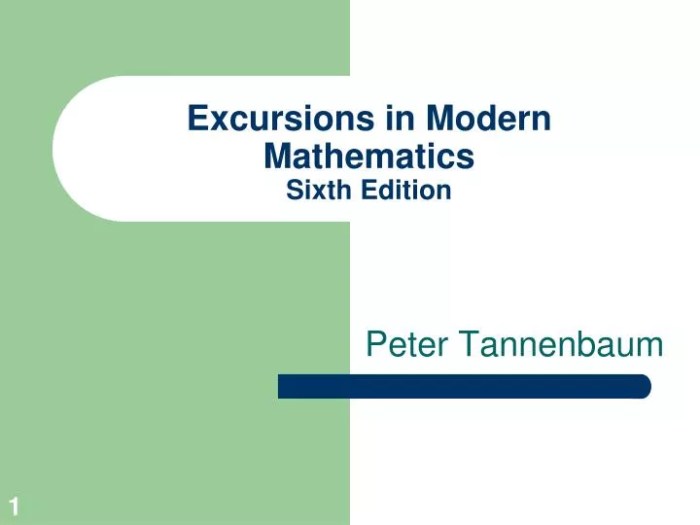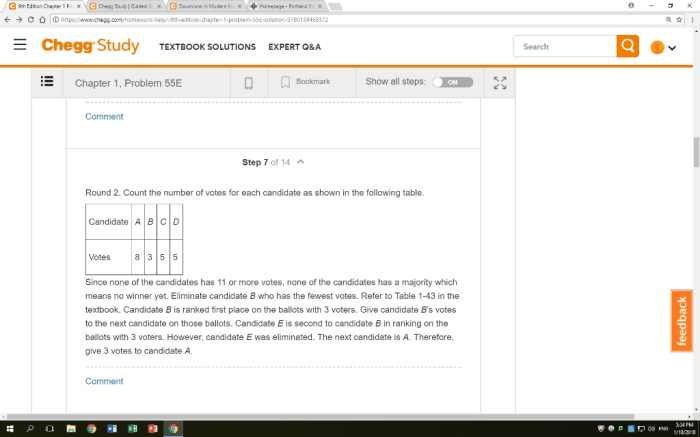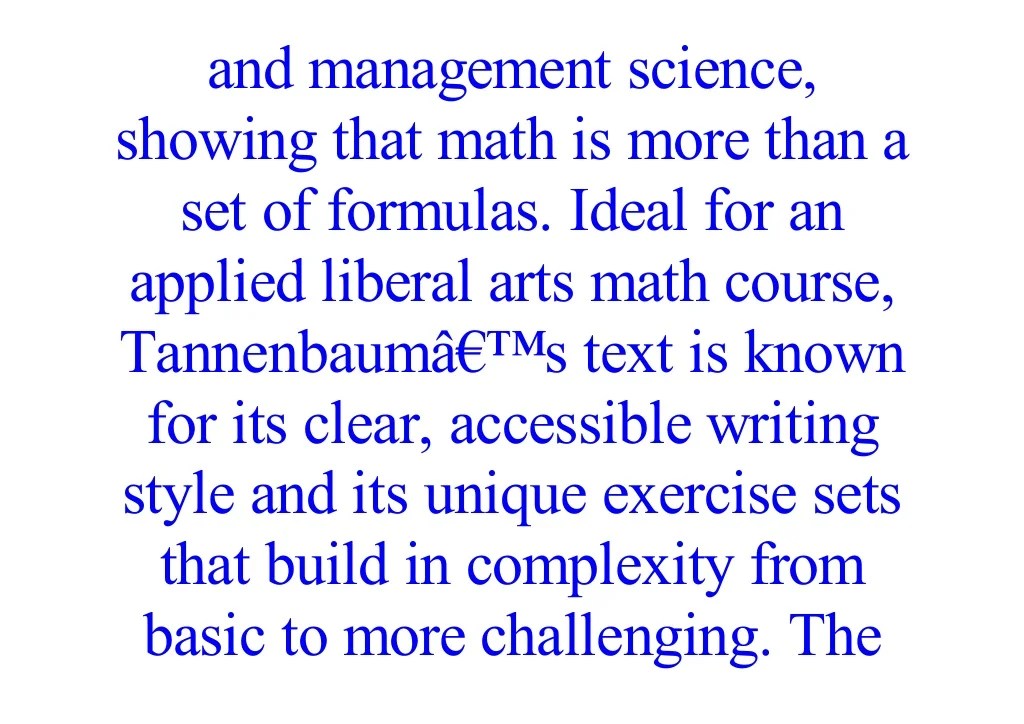Excursions in modern mathematics 10th edition – Excursions in Modern Mathematics: A Comprehensive Guide to 10th Edition embarks on a captivating journey through the intricate world of modern mathematics, unveiling its fundamental concepts, theorems, and applications with unparalleled clarity and precision.
This comprehensive guide delves into the core principles that underpin modern mathematics, illuminating the significance and far-reaching implications of these concepts and theorems. It meticulously organizes the key ideas and results in an accessible and visually appealing HTML table, ensuring effortless navigation and understanding.
Introduction
The 10th edition of “Excursions in Modern Mathematics” provides a comprehensive exploration of contemporary mathematical concepts and their applications. It is a highly regarded textbook designed for advanced undergraduate and graduate students in mathematics and related fields.
Key Concepts and Theorems

The book covers a wide range of core concepts and theorems, including:
| Concept/Theorem | Significance | Applications |
| Group Theory | Foundation of modern algebra | Cryptography, coding theory |
| Topology | Study of geometric properties | Differential geometry, knot theory |
| Number Theory | Properties of integers | Cryptography, computer science |
Mathematical Techniques: Excursions In Modern Mathematics 10th Edition
- Proof by Contradiction: Demonstrating a statement by assuming its negation leads to a contradiction.
- Mathematical Induction: Proving a statement for all natural numbers by verifying its base case and induction step.
- Counting Techniques: Determining the number of possible outcomes in a given situation using combinatorics.
Problem-Solving Strategies
The book emphasizes problem-solving strategies such as:
- Polya’s Four-Step Method: Understanding the problem, devising a plan, carrying out the plan, and looking back.
- Heuristics: General problem-solving principles, such as working backward or considering extreme cases.
- Creativity: Encouraging students to think outside the box and approach problems from novel perspectives.
Historical Context

The book traces the historical development of mathematical concepts and theorems, highlighting the contributions of key mathematicians such as:
- Euclid: Foundations of geometry
- Carl Friedrich Gauss: Number theory and statistics
- Henri Poincaré: Topology and differential geometry
Applications in Other Fields
- Science: Modeling physical phenomena, data analysis
- Engineering: Design optimization, signal processing
- Computer Science: Cryptography, algorithms, artificial intelligence
Pedagogical Approach

The book adopts a clear and engaging writing style, supported by numerous examples and exercises. It effectively balances rigor and accessibility, making it suitable for students with varying mathematical backgrounds.
Comparative Analysis
| Edition | Key Differences | Improvements |
| 9th Edition | Less emphasis on applications | Expanded coverage of number theory |
| 8th Edition | Different chapter organization | Updated examples and exercises |
FAQ Section
What is the primary focus of Excursions in Modern Mathematics: A Comprehensive Guide to 10th Edition?
The guide provides a comprehensive overview of the 10th edition of “Excursions in Modern Mathematics,” exploring its key concepts, theorems, mathematical techniques, problem-solving strategies, historical context, applications in other fields, and pedagogical approach.
How is the content organized in Excursions in Modern Mathematics: A Comprehensive Guide to 10th Edition?
The guide is structured into distinct sections, each addressing a specific aspect of the textbook, including key concepts and theorems, mathematical techniques, problem-solving strategies, historical context, applications in other fields, pedagogical approach, and comparative analysis.
What makes Excursions in Modern Mathematics: A Comprehensive Guide to 10th Edition unique?
The guide offers a comprehensive and in-depth analysis of the 10th edition of “Excursions in Modern Mathematics,” providing a thorough understanding of its content, pedagogical approach, and significance in the field of modern mathematics.